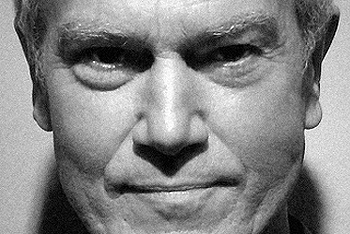 80s - John Foxx (2011)
80s - John Foxx (2011)
A New Kind of Man: The John Foxx Story
John Foxx (aka Dennis Leigh) was born in Chorley, Lancashire in the north of England. An intellectual child it was not long before a career in the arts beckoned as Foxx enrolled at the Royal College of Art in London. Then musically struck, he formed the band Ultravox!. After 3 albums, including one produced by the now legendary Brian Eno, Foxx left the band in 1979.
His first solo disc, Metamatic, was issued in 1980 through his own label metal beat, and with the exception of some bass, the sound was completely synthetic. It was followed by a livelier album, The Garden, which came a year later. 1983s The Golden Section was one of the few Foxx releases produced by an outsider, Zeuss B. Held.
After a self-imposed hiatus, which included time spent lecturing, helping on the shoot of the video to techno band LFOs debut namesake single, illustrating book covers and collaborating with Bomb the Bass mainman Tim Simenon on the short lived project Nation 12, come 1997 and Foxx re-appeared with two new albums: Cathedral Oceans and Shifting City.
The Pleasures of Electricity, in September 2001 was his next work, before 2003s Crash and Burn. That year also saw the release of the second volume of Cathedral Oceans as well as another ambient record, the double CD Translucence and Drift Music with Harold Budd. The following year Cathedral Oceans III was released.
In 2006, Foxx released an instrumental solo album called Tiny Colour Movies consisting of fifteen instrumental tracks inspired by short art films he saw at a private screening. Three collaborative albums with Louis Gordon were released in late 2006, before a showcase of Foxxs work was held at the Institute of Contemporary Art in London in 2007.
In 2010, renowned Berlin producer Mark Reeder was given the ultimate honour of remixing the legendary track Underpass (Reeder Sinister Subway Mix) for John Foxxs special CD/DVD retrospective compilation Metatronic.
You can catch this musical genius live whilst John Foxx And The Maths are on tour in the UK this October (see all the dates at the base of this interview page).
Exclusive Magazine recently sat down with John Foxx and discussed his career in Ultravox!, his solo releases, morning encounters with Keith Richards, and, of course, ... Penguins!
Early Days
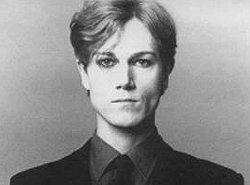
Taking it from the top and when did Dennis Leigh become John Foxx - and why? Around 1975/6. Needed to replace the previous guy. He just was not up to the task ahead. Needed someone more intelligent and able. Total redesign was the only option.
Growing up in Chorley, Lancashire (UK), who were your musical influences on the radio? Elvis, Billy Fury, Joe Meek. Later came Beatles, Stones, Who, then Small Faces, and Floyd. Bit of early Bowie on car radios, going to Art School in Manchester. Stopped listening after that. Got into art and other stuff.
What was the very first 7 Inch single you purchased with your own pocket money? Never purchased. Always recommended to friends, then listened at their house. Did not even have a record player at home.
The first record player I ever had was a gift from Island Records, they figured I ought to have a home system to check record pressings.
Back in 1975, Tiger Lily had their cover of the Fats Waller track Aint Misbehavin commissioned for a soft porn movie of the same name! Not subsequently used, did you ever get to watch the movie?! Oh yes. Went to a private view in Soho. It was a collection of 1920s nickelodeon porn! Imagine the Keystone Cops tumbling overweight nude nuns. Sank without a trace.
Ultravox!
Making sure we have got the facts straight here, it was actually you (and fellow members of what used to be Tiger Lily) that created Ultravox!, with an exclamation mark. Chock full of synths and your incredible vocals, the first three albums were (and still are) quite wonderful. What are your memories of creating these albums and what speed bumps did you encounter along the way at the time? This is the story. I recruited the others when I was at art school in London. It was 1974. I had written some songs, experimented with feedback and wanted to form a band, one that was modern and trashy, based on the Velvets, Neu!, The New York Dolls, and other marginal musical areas such as Tango, Psychedelia, Dub and Electronics. I did not ask anyone to actually play. It was more a matter of attitude. Urban Code.
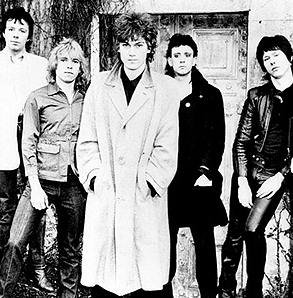
We rehearsed at the Royal College of Art until we got too loud. Then I found a room in a warehouse for showroom dummies, in Kings Cross, an area then famous for prostitution.
We met Steve Lillywhite, who recorded us in a studio he was working at across town, by Marble Arch. He was a young apprentice engineer who wanted to be a producer. I managed to play those recordings to someone at Island Records, who gave us a contract.
We went through several names - Zips, The Fire of London, Plims, (even The Damned, until we found out someone else got there first). I finally settled on Ultravox!, because it sounded like an electrical product - which is what we intended to be.
I asked Brian Eno if he would produce. Lillywhite was one of the gang and therefore included as recording engineer - we had recorded a good part of the album with him at Marble Arch, anyway.
The Stones struck a deal with us for studio time, so we used the days and they used the nights. I often found Keith asleep, all alone at the console in the mornings. I would wheel him out into the corridor to sleep it off by the Coke dispenser. He had come in and socialize for a while, then zoom off in his big, black Bentley.
Eno was good - and interesting to work with. Understood what we were about and gleefully assisted its realization. Through him we used drum machines and synths and found some new ways of operating - by using the studio as an instrument, for instance.
Towards the end of the sessions, Brian got the call from Bowie to work on Low, and he was off on his new career as producer. Lillywhite got the job as Island house producer. He recorded hits by Siouxsie, The Psychedelic Furs, then The Stones.
Eno and Lillywhite functioned so well together they went on to do it again with U2, in the same way. In retrospect, those sessions ended with everyone well set up for the next few eras of rock. Lots of those relationships were established there, in that moment.
And, for the record, just why did the band lose the exclamation mark for the third album onwards? The exclamation mark was a nod to Neu! - a band we liked very much in the early 70s. They were a German proto-Punk, then proto-electronic band, somewhere between Brit Psychedelia, New York Avant-Punk (as in The Velvets and Suicide) and electronica, such as Kraftwerk, Can, Roedelius and Moebius - and early Tangerine dream.
By the time we had reached Germany, recorded Systems of Romance and worked there for a few years, we felt we had our own voice, so it seemed time to drop any tributes.
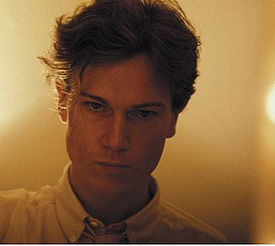
Reflecting back to 1979, you left Ultravox for a solo career - choosing the end of a west coast tour of the US to do it! But, was it always planned to happen that way by you? Only after the rehearsals for Systems. I had ten songs and the band had none at the start of the sessions. I had been working at home, tremendously excited by synths, tape recorders and drum machines, etc. With these, I had written several other songs that I knew just would not work with a band - they were so purely electronic. I strongly felt the future lay with this way of working.
Equally, given my proclivity for making difficult records, I knew Metamatic would have only a slight chance of success, so I could not ask the band to hang around until it was finished.
I also knew by then that I was not psychically equipped to be any kind of rock star. Needed to go in for repairs too often. In the end, I decided to record Systems and complete the connected tours. The band could have the name and identity, then that would be it.
During the recording, I signed off in the song I Cant Stay Long. The last tour just happened to end up in Los Angeles. Took the first plane home and switched on the drum machine. Joy.
With Ultravox soon back from hiatus, your replacement was an old friend from time spent together in Visage, Midge Ure - and suddenly, the very next year they achieved worldwide success with the album Vienna. With that new line-up lasting another nine years, and releasing a series of popular albums and hit singles, in truth would you make that very same choice to leave again - given what you know now? Of course. I have had no wish to be part of that kind of operation since then. Occasionally I re-experience something of the tremendous relief at walking away.
In retrospect, its just great how everything worked out for both of us - both parties got exactly what they wanted in the end. I would like to think I made a good basic design, one that was strong enough to allow the evolution of two very different entities, and give them both a future.
Solo - Part 1
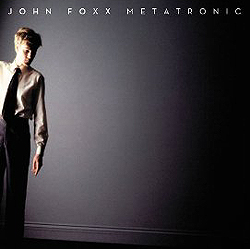
Now solo, you released Metamatic, followed it up the next year with The Garden, then late in 1983 you gave us The Golden Section, before 1985 saw your last solo album in the 80s, In Mysterious Ways. You said after that last album that you felt divorced from any contemporary musical influences, and then gave up a public career in pop music. So, what was it about the music scene at that time that made you withdraw from it? It was crap. The mid to end of the eighties was a rubbish era - until Acid appeared in 88. Only then was there a decent underground scene again.
Previous five years were a slow death by whimpering white soul, Perfect Pop, Oi boys and samplers. You had to take deep shelter. I had long wanted to pick up my work in visual Art, so here was the opportunity. There was an awful lot to catch up with notebooks full of stored ideas.
By coincidence, in 1984 image-making electronic technology would change photography and graphic art as radically as synths altered music in the seventies.
I would just get free access to the first computer imaging system in Soho and wanted to use it for collaging and combining imagery in new ways. It was exactly the same situation as the late 70s - a new era about to unfold and I wanted to be in there driving.
So I made the same decision again. And it worked out again. Could not believe my luck - another career. What fun.
Graphic Artist
So, for a while you returned to an earlier career as a graphic artist, even working under your original birth name, Dennis Leigh. Where I understand delving into another entertainment genre to still be able to create, why change your name? Surely keeping with John Foxx would have sold a multitude of art also?! I wanted to be certain I was not trading on that identity. In order to maintain basic self-respect, the visual work needed to succeed on its own merit.
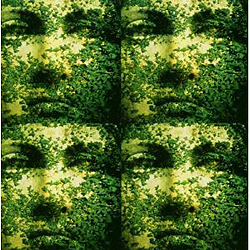
After I managed to achieve that initial success, though, the point was proved and it ceased to matter, I felt free to include all that stuff under the name of John Foxx. Until then, I stored him in the freezer.
To this day, which work of art that you have created - whether it be a painting or a book cover - are you the most proud of... and why? I think Cathedral Oceans. That took years and it was all such a great pleasure to do - making images from fragments of places all over the western world.
Some of the material was very personal - walls and buildings in the east end of London and the industrial north where I grew up, for instance, and lots of places visited on European and American tours.
I would go out exploring the streets, often at dawn, when I could not sleep. Almost every city I have ever been to is included in those images.
Solo - Part 2
In early 1997, you stopped living like a ghost in London and made a return to the music scene with Shifting City and Cathedral Oceans. Subsequent albums have now come out through the 2000s, but in all this time, after all these solo albums, which one is still today one you can listen to straight through without a break? Don ot listen much to my own past. Occasionally, I might play Translucence, the one I made with Harold Budd.
There is so much other music to explore - then there is always the music being worked on at present things I am planning to record, doing experiments and tests, and so on. It is always what is just ahead that I am trying to listen to.
Final Fun Five
1) Do you ever run into old band members from your very first band, Woolly Fish? Ha, not for some years, though I hear that Phil - the instigator of that band, who disappeared for around twenty years - has just been in touch with a mutual friend from art school. I think there might be a few good stories in all that.
2) Who is the most famous person currently in your cell phone? Could not possibly be so indiscreet.
3) You are on Facebook - but, is that truly you and do you monitor it regularly? I am truly me and I am everywhere.
4) Given a quiet night in, nothing on the TV, what take out food would you buy, what movie would you ideally like to have on DVD to watch, and what drink (alcoholic or otherwise) would you be reaching for? A Heston Blumenthal Vapourised LobsterCloud.
Nitrous Oxide Cocktails to go.
You would not need the movie!
5) Lastly, and throwing you a journalistic curve ball, Exclusive Magazine loves Penguins ... do you? Prefer the lobster!
Interview: Russell A. Trunk
www.metamatic.com
www.johnfoxxandthemaths.com
Catch John Foxx And The Maths UK Interplay Tour!
John Foxx And The Maths will be performing material from their new album Interplay, together with classic songs from early Ultravox and Foxxs solo career.
John Foxx will be joined on-stage by:
Benge - Keyboards, Percussion
Serafina Steer - Keyboards, Bass
Hannah Peel - Keyboards, Violin
OCTOBER 2011
13 Leamington Spa Assembly Rooms
20 Bristol Thekla
21 Manchester Academy 4
22 Liverpool Stanley Theatre
23 Glasgow Arches
24 York Duchess
25 London XOYO
27 London XOYO
28 Holmfirth Picturedrome
Back To Archives

